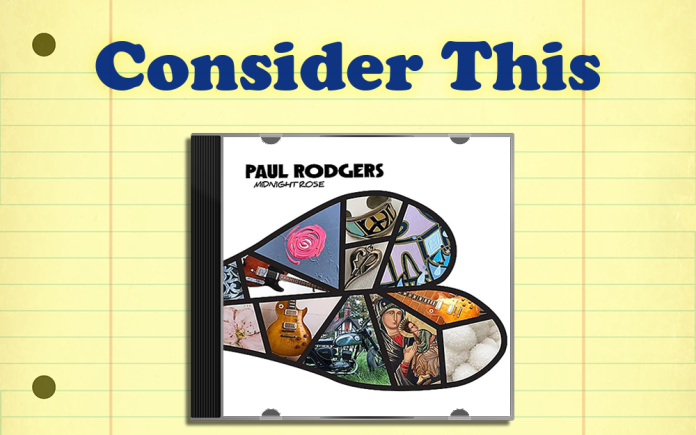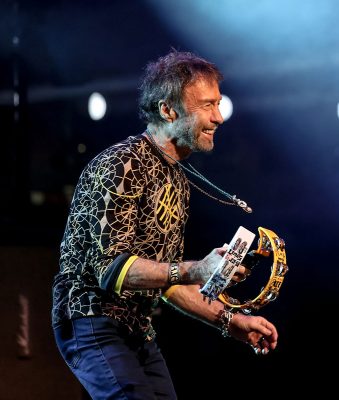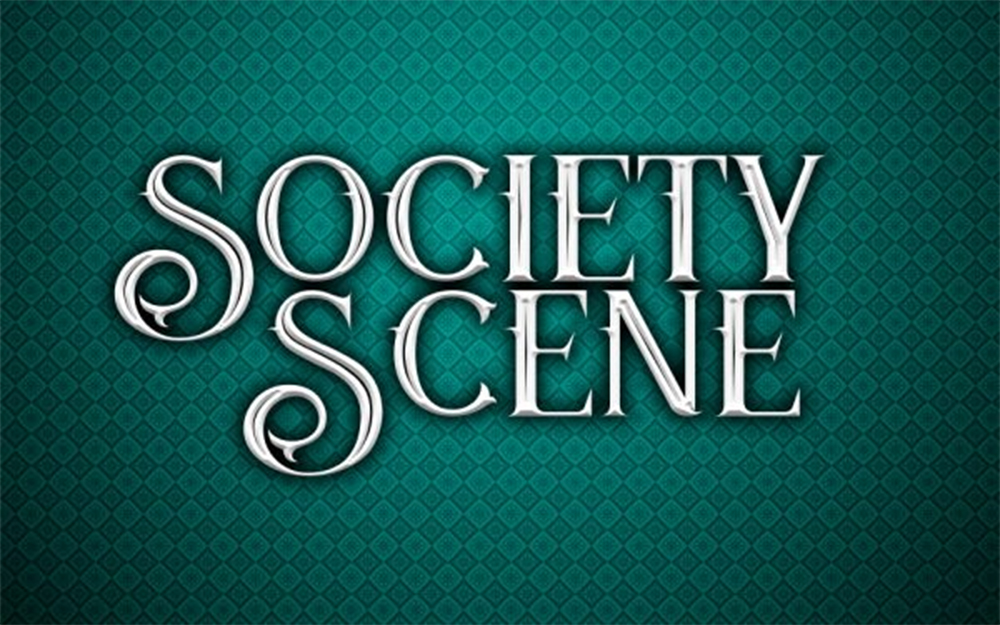
By Eleni P. Austin
“Memphis music moved me so and I’ve never been the same, Otis Redding, Aretha and Ray Charles too, you know they changed my game.” That’s iconic rocker Paul Rodgers humbly acknowledging his early influences on “Living It Up,” a track off his brand new solo album, Midnight Rose.
Paul has been a part of the Rock & Roll firmament for nearly 60 years. Hailing from Middlesbrough, North Yorkshire, he made his bones in bands like The Roadrunners, before becoming the front-man for Free in 1968. Along with bassist Andy Fraser, he wrote their Top 5 hit, “Alright Now,” By 1973, he had formed Bad Company with guitarist Mick Ralphs, drummer Simon Kirke and bassist Boz Burrell.
Signed to Led Zeppelin’s boutique imprint, Swan Song, they spent the remainder of the ‘70s perched at the top of the charts with songs like “Bad Company,” “Can’t Get Enough Of Your Love,” “Feel Like Makin’ Love,” “Shooting Star,” “Run With The Pack” and “Rock & Roll Fantasy.” The next decade found Paul toggling between a solo career and joining his pal Jimmy Page in The Firm. By 1991, he had teamed with ex-Faces/Who drummer Kenney Jones as The Law. A couple years later, he recorded his second solo effort, Muddy Waters Blues: A Tribute To Muddy Waters. The Grammy nominated album included contributions from Superstar compadres like Jeff Beck, Brain Setzer, Buddy Guy, Steve Miller, David Gilmour and Slash.
Bad Company reconvened at the start of the 21st century, touring around the release of a two-CD anthology. A couple years later, the surviving members of Queen recruited Paul to sing on their upcoming European tour. The pairing felt wildly apropos since the late Freddie Mercury had cited Paul as one of his all-time favorite singers. The collaboration, known as Paul Rodgers + Queen, yielded a live collection; Return Of The Champions, and a 2008 studio album, The Cosmo Rocks.
By 2017, his Free Spirit tour concentrated on Free material and resulted in a live album of the same name, recorded at The Royal Albert Hall. But Paul had a health scare that threatened to derail his career. In 2016, he suffered the first of two major strokes. Still, he returned to the road in 2018 with Jeff Beck. But in 2019, he endured a second major stroke which actually affected his speech and musical abilities. These, along with 11 more minor strokes, required an endarterectomy. (A procedure to remove the plaque or blockage in an artery). But he has made a full recovery. Once he was on the mend, he began to make music again. The result is his 13th solo album, Midnight Rose.
The record kicks into gear with the one-two punch of “Coming Home To You” and “Photo Shooter.” On the former, walloping backbeat collides with swaggering guitars, roiling bass lines and sticky keys. Paul’s vocals remain lithe and acrobatic on this unabashed love song. Lyrics chart a Homeric journey; “On the wings of a jet plane out of the blue, on the wheels of a fast train, I am speeding to you.” Guitars tangle on the break, stinging, sparkling and scrapping, like a wordless Greek chorus urging this wayward traveler home. A wailing sax on the outro hails his return.
Rangy guitars wrap around serpentine bass, darting keys and a propulsive rhythm on the latter. Paul offer a vivid snapshot of photojournalist pivoting between grit, glamor and gravitas; “From the palace to the gutter, from the vagrant to the king, through the eye of the shutter, the camera catches everything/A border skirmish night patrol, freedom fighters stand and fall, and in the morning, headline news is just the writing on the wall.” Tough-minded guitar riffs stack on the break, bookending the lyrical verisimilitude.
The action slows on a couple of tracks. “Dance In The Sun” is a mid-tempo groover powered by cascading guitars, thrumming bass, shimmering keys, strategic handclaps and a propulsive kick. The breezy melody and arrangement are matched by cheerful lyrics that put Paul’s health crisis in the rear view; “Took a lot of time, took a lot of trouble in mind, took a lot of trial and error. took a little pain, took a little sacrifice,took a lot of stormy weather, but I know the hurting time is over now.” Guitars strut and gambol just ahead of the bridge. An ode to his family, as well as his own perseverance, salted in the mix is the infectious sound of his grandkids’ laughter.
Meanwhile, the title track is equally life-affirming. Celtic-flavored guitars wash over lowing strings, pinging keys, thorny mandolin, warm piano notes, thready bass and a rock-ribbed beat. Serene and self-possessed lyrics remind us that even at our lowest ebb, we are never completely on our own; “All the stars in the sky and the heaven above look down on us with their love, and I know that I have had no one to tell me I am not alone.” Querulous guitars partner with gauzy piano on the break and the rogue’s gallery of backing vocals give the song some Gospel heft.
The best songs land smack in the middle of the record. “Highway Robber” travels down the same dusty road as the song “Bad Company.” Jangly guitars, flinty bass and shivery keys are tethered to a clip-clop gait. The nuanced narrative shares the saga of an honorable outlaw who hews to his own code of ethics; “Now, I ain’t no killer, but I’m labelled as such, for during that shootout, my gun was untouched, I couldn’t shoot him cold, for no amount of gold, and so I stood beside a man who bravely died.” On the break, an expansive guitar solo is shadowed by Paul’s raspy harmonica notes and a some enthusiastic “Yippie Ki Yays.”
“Take Love” is a crackling carpe diem anchored by strummy acoustic riffs, frisky piano, soulful organ runs, strafing electric guitar and a rattle-trap beat. Spiky guitars and churchy piano color outside the lines as Paul offers up this philosophical nugget; “We are here today, who knows where we’ll be tomorrow, hearts we steal, and love we borrow, give a little back and there’s no harm done, even the mystics say you gotta have a little fun.” The juggernaut instrumentation accelerates on the break as renegade guitar riffs break away from the pack, spiraling and dovetailing. The whole thing locks into a groove typically reserved for Mad Dogs and Englishmen, before Paul has the final say; “Choose love.”
Finally, the aforementioned “Living It Up,” is the record’s centerpiece. Prowling guitars are wed to spooky keys, wily bass lines and a stutter-step beat. It’s an origin story of sorts. Paul grows up in Middlesbrough, England, but truly feels at home in North America; “Now I’m living it up in America, I’m living it up inAmerica, home of the Blues and the heart of Soul, yeah the heart of Soul….feel like I’m part of a family, with my brothers and my sisters, showing the world how freedom can be.” A scorching guitar solo stretches into the stratosphere on the break, thrusting and parrying with rapid-fire organ notes before paring down to a few staccato riffs.
The eight-song set closes with “Melting.” Knotty bottleneck chords snarl atop brawny acoustic riffs, agile bass and a hulking backbeat. Here, Paul easily inhabits the skin of another renegade (but not in an icky, Styx way), on the margins of society and the wrong side of the law. He’s looking for a bit of grace and redemption; “Get behind me, troubled times, get behind me my troubled mind.” Sinewy guitars stake out the break, but the end is near; “In my solitude, I will keep the fires burning, for my beatitude, to the holy virgin, the hounds of hell on my trail, on my trail, on my trail.”
 This is a solo album in name only. Paul was ably assisted by a wolfpack of pickers and players including Ray Roper on guitar, harmonium, mandolin and synth, Keith Scott and Rob Dewar on guitar and Classical guitar, respectively. Bass duties were handled by Todd Ronning and Norm Fisher. Rick Fedyk was behind the drum kit and played percussion with Kayson Chung. Chris Gestrin played keys, Hammond B3, Clavient and synth. Jimmy Mattingly played violin and viola. Johnny Ferreira provided some sax and the legendary Chuck Leavell (Allman Brothers, Rolling Stones) added piano on two tracks. Leslie Page, as well as Deb Saunders Shaughnessy Rose Barker and Cynthia Rodgers provided backing vocals. Cynthia also shared production chores with Bob Rock, best known for his work with Metallica, Motley Crue, The Cult, Sarah McLachlan, Michael Buble and The Offspring.
This is a solo album in name only. Paul was ably assisted by a wolfpack of pickers and players including Ray Roper on guitar, harmonium, mandolin and synth, Keith Scott and Rob Dewar on guitar and Classical guitar, respectively. Bass duties were handled by Todd Ronning and Norm Fisher. Rick Fedyk was behind the drum kit and played percussion with Kayson Chung. Chris Gestrin played keys, Hammond B3, Clavient and synth. Jimmy Mattingly played violin and viola. Johnny Ferreira provided some sax and the legendary Chuck Leavell (Allman Brothers, Rolling Stones) added piano on two tracks. Leslie Page, as well as Deb Saunders Shaughnessy Rose Barker and Cynthia Rodgers provided backing vocals. Cynthia also shared production chores with Bob Rock, best known for his work with Metallica, Motley Crue, The Cult, Sarah McLachlan, Michael Buble and The Offspring.
The term “Classic Rock” has been part of the lexicon since the early ‘80s. Coined, in part as a marketing tool, as well as a way to placate Baby Boomers who felt threatened by emerging genres like Punk, Rap, New Wave and Hip Hop. Certainly, bands like Free and Bad Company guarantee that Paul Rodgers’ songs remain part of that musical continuum. But he’s never seemed content to be part of the status quo. His music always manages to push the boundaries and test his limits. Midnight Rose is no exception. As much as his legendary music remains classic, this eight-song set feels timeless.












































